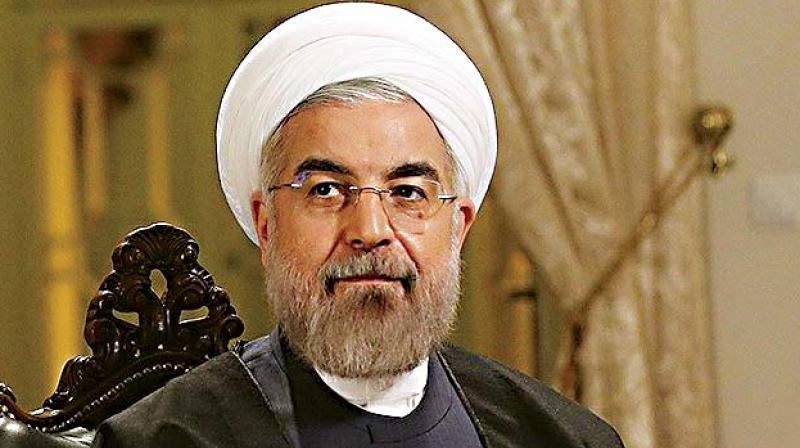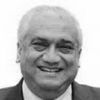Iran, US & Israel: A tale of 3 summits in Mecca

Following a spate of attacks on four oil carriers in the waters of the United Arab Emirates on May 12 and the drone attacks on Saudi Arabia’s pipelines of May 21, America’s national security adviser John Bolton said that it was “very likely” that Iran was behind the attacks. US secretary of state Mike Pompeo added that Iran had hoped to “panic oil markets” and boost prices. Iran was also accused of providing the drones used by the Houthis to hit the Saudi pipelines. The United States, citing possible threats to its assets, escalated confrontation against Iran by increasing its troop presence and firepower in the Gulf.
Saudi Arabia stepped into the scenario by doing what it does best — convening summits. On May 30 and 31, in the last days of the month of Ramzan, the Saudi monarch, King Salman bin Abdulaziz, convened three back-to-back summits at Mecca — a summit of the six members of the Gulf Cooperation Council (GCC), another gathering of the 22 members of the Arab League, and, finally, a summit of the 57 members of the Organisation of Islamic Cooperation (OIC).
There need not have been three summits — all members of the GCC and the Arab League are also members of the OIC. But these three conclaves recall the same three summits held in Riyadh two years ago, when the newly anointed Donald Trump graced the kingdom on his first foreign tour as US President. That visit put in place policies and alliances that resonate today.
President Trump had then shaped what commentators referred to as the “Trump Doctrine” for West Asia, which consisted of — visceral animosity for Iran, close ties with Saudi Arabia (to be lubricated by arms deals), and total commitment to Israel and its interests. Mr Trump also called for increasing cooperation between Saudi Arabia and Israel against Iran, as well as Saudi backing for Mr Trump’s “deal of the century” to resolve the Palestinian issue.
The deal on Palestine has been delayed due to elections in Israel. For the rest, the Trump agenda has largely been realised. The US has heightened its hostility for Iran by reinstating sanctions and threatening regime change. It has also expressed full backing for Israel by recognising its occupation of Jerusalem and the Golan Heights, and has promoted a US-Israel-Saudi political and military alliance in the region, directed against Iran. The recent Mecca summits flow from this background.
They were meant to deliver two main messages. One is to convey to Iran that the Gulf, Arab and Muslim communities stand solidly beside the kingdom and affirm its supreme status — as the guardian of the holy shrines, as the protector of Arab interests, and as their defender in the face of attacks on their faith and fortune. Concomitant with this is the identification of Iran as the source of instability and terror across the region and the determination of Arabs and Muslims to stand steadfast against its threats and machinations.
The sub-text at the conferences was that the Saudi heir apparent, Crown Prince Mohammed bin Salman, enjoyed the full confidence of the assembled leaders, despite the calumny showered upon him for his authoritarian rule, his harsh treatment of prominent fellow citizens, and his close affiliation with Israel.
The other message, directed at the US, conveyed that the kingdom was a worthy ally, able to summon Arab and Muslim leaders at short notice, and get them to back the US in its confrontation against Iran. The timely purchase of US arms valued at over $8 billion by Saudi Arabia and its allies was an additional sweetener for the US President. But the darker sub-text here is to encourage the US to launch an attack on Iran, in line with traditional Saudi policy of fighting Iran to the last American!
As at the previous GCC, Arab League and OIC conclaves, the three Mecca summits were strong on rhetoric. King Salman called on the assembled leaders to take decisive action to stop Iranian “escalations” in the region, and added that his country had joined the United States “to mobilise (regional) opinion” against Iran. He referred to attacks on the oil carriers as “terrorist sabotage” and a threat to the security of maritime traffic. The Arab League joint statement said that Iran “poses a direct and serious threat” in the region and called for an end to Iran’s “destabilising acts”.
Saudi commentators have celebrated the summits. One said that Iran “faced total isolation in the Muslim world” and applauded the kingdom’s “diplomatic achievement” in convening the summits which affirms the “respect that Saudi Arabia commands in the Arab and Muslim world”. Another said the summits had highlighted the dangers Iran posed not just for regional but global security by spreading sectarianism and unrest in different countries in West Asia.
But other observers have been less enthusiastic. Ali Anouzla, writing in Middle East Monitor, pointed out that the resolutions of the three summits are “irrelevant” as they “achieve nothing and change nothing”, with summiteers simply endorsing statements prepared in advance by the host country. He said that Saudi Arabia was holding with one hand the enemies of the Muslim community and was using the other hand to stab in the back countries that shared its “values, religion, language, history and geography”.
Egyptian commentator Hassan Nafia said that the kingdom’s principal effort at the summits was to instigate a war on Iran, but noted all three organisations were deeply divided on the subject, generally seeing the Saudi position as supportive of US-Israeli interests rather than reflecting the views of the assemblies.
While the Saudi monarch and the crown prince may have hoped that the spectacle of the three events within the holy precincts of Mecca would boost their image and steer the community leaders against Iran, hardly any one in the three assemblies accepted the Saudi demonising of Iran. Nor did any of them believe that they had the capacity to influence the decision to initiate hostilities against Iran: they are but bit players in the drama whose script is written in Tel Aviv and Washington.

